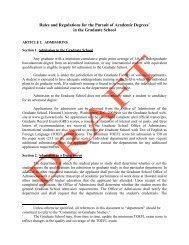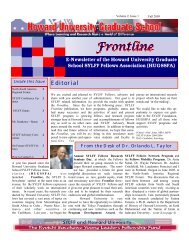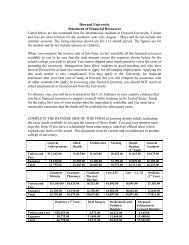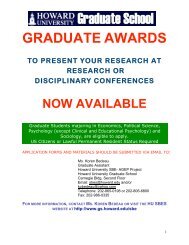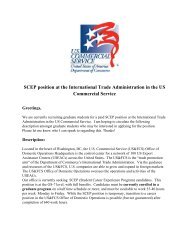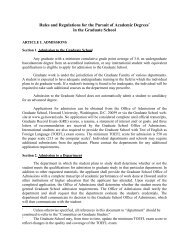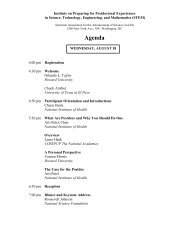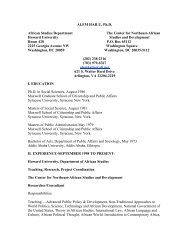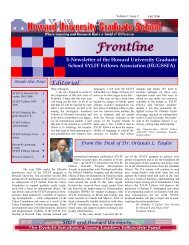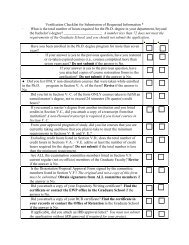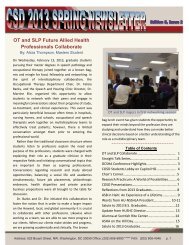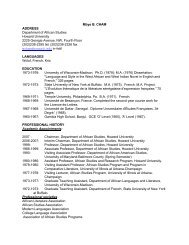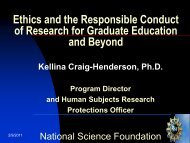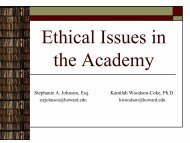Self-Study Design - Howard University, Graduate School
Self-Study Design - Howard University, Graduate School
Self-Study Design - Howard University, Graduate School
You also want an ePaper? Increase the reach of your titles
YUMPU automatically turns print PDFs into web optimized ePapers that Google loves.
• The appointment, promotion and tenure policy and procedure<br />
• Faculty evaluation procedure for salary and merit adjustments<br />
• The role and responsibility of full-time, part-time, adjunct faculty (for example, teaching<br />
loads, committee work, service to the community, and research)<br />
• Published policies and procedures (for example, faculty handbook, travel policy, and<br />
sabbatical leave policy)<br />
Standard 11: Educational Offerings<br />
Chair: Professor Rodney Green, Economics<br />
Scope of Work and Objectives.<br />
This scope of work encompasses all of the academic and professional schools within the<br />
<strong>University</strong>, as well as many of the support units. The research design will address the academic<br />
content, rigor, and coherence, as well as student learning goals and objectives, within each of the<br />
academic units. The overall success of the <strong>University</strong> in achieving appropriate levels of academic<br />
content, rigor, and coherence, and student goals and objectives, will reflect this unit-by-unit<br />
analysis.<br />
Research Questions.<br />
1. What are the educational offerings (degree and certification programs) and related<br />
faculty, staff and student levels, qualifications, and characteristics?<br />
2. What have been the processes and outcomes of self-studies, external reviews, and<br />
responses to reviews across university units?<br />
3. Are the educational offerings congruent with the <strong>Howard</strong> <strong>University</strong> mission?<br />
4. Are expected learning outcomes properly articulated and documented in university units?<br />
5. Are there appropriate assessment tools for determining if the expected outcomes are<br />
being achieved?<br />
6. Do expected learning outcomes align well with the associated curriculum/a?<br />
7. Are learning resources appropriate for the educational offerings available, including<br />
resources and instructional processes to assure information literacy among students?<br />
8. What are the periodic assessments of the effectiveness of curricular, co-curricular, and<br />
extra-curricular experiences and how are such assessments used to improve student<br />
academic and personal development?<br />
Standard 12: General Education<br />
• Chair: Associate Dean Barbara Griffin, Arts and Sciences<br />
Scope of Work and Objectives.<br />
This scope of work examines whether or not <strong>Howard</strong> <strong>University</strong>’s general education curricula<br />
are “designed so that students acquire and demonstrate college-level proficiency in general<br />
education and essential skills, including at least oral and written communication, scientific and<br />
quantitative reasoning, critical analysis and reasoning, and technological competency”<br />
(Characteristics of Excellence in Higher Education, p.47). On a broader scale, the General<br />
Education Work Group will seek to explore those questions that will position the <strong>University</strong> to<br />
24



